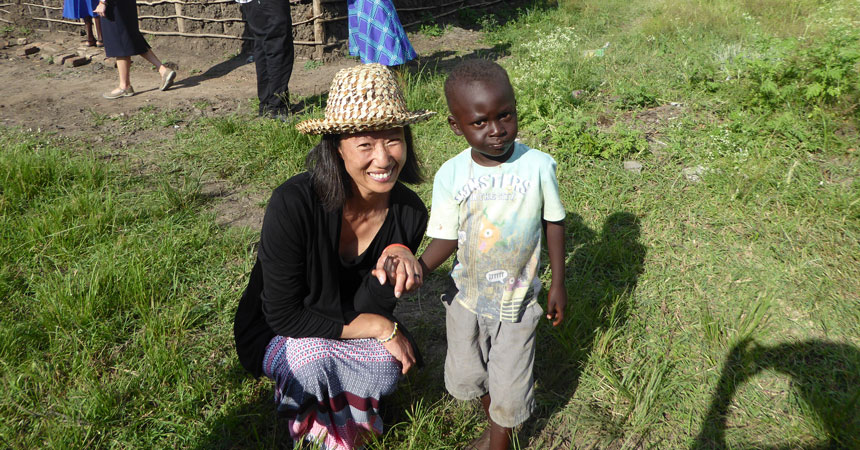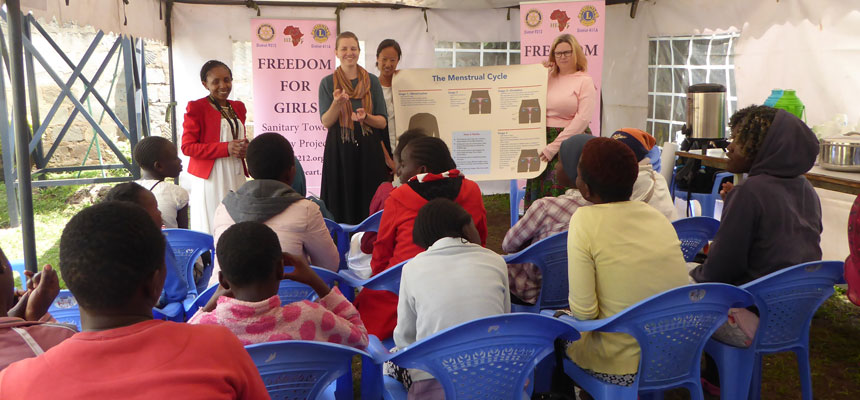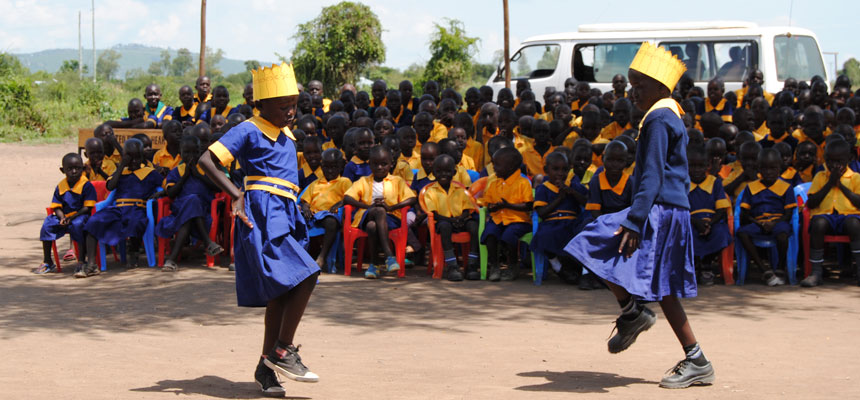Professor demonstrates how educated women can change the world

Dr. Katherine Fogelbergand friends are building a school in Kenya.
Their mission is to empower girls, to show them that big dreams are achievable and anything is possible through education and support.
The UNT Health Science Center public health professor understands what it means when someone is there to lend a helping hand.
As a South Korean orphan adopted by an American family, her personal experiences and the opportunities she found growing up in her new country forever shaped her life, career and desire to give back to others.
Over the years, Dr. Fogelberg studied animal science and became a doctor of veterinary medicine. She completed a master’s degree in educational leadership. She took that forward to gain a PhD in science education, and has worked in public health for the last eight years.
Along the way, she’s also traveled the world, serving in the U.S. Army and caring for wildlife in remote places like South Africa and Uganda.
Now she wants to help other women dream big and go for their personal best.
“Msomi means scholar in Swahili, the most commonly understood language in Kenya,” Dr. Fogelberg said, explaining why the non-profit she has founded is called Msomi Academy for Girls.
The small team spearheading this project has a long road ahead to secure funding, develop curriculum and become accepted by parents and future students. They know it won’t be easy, but they are ready for the challenge.

“We want to do something good in the world. My colleagues and I are passionate about education. We want to help empower girls,” Dr. Fogelberg said.
The startup team includes teachers, marketing and creative counsel, those with experience in preparatory school management, and UNTHSC public health students and alumni.
Several team members visited Kenya in June to look for land, meet with families, learn more about the region’s different cultures, deliver mosquito netting and teach prevention of infectious diseases like malaria, typhoid and cholera.
“We talked with girls who want to someday become pilots, lawyers and physicians,” Dr. Fogelberg said. “Many believe, for the first time in their ethnic cultural history, that this is possible, in large part because of a local role model who’s become the area’s first female to graduate from medical school. They are starting to see possibilities that might exist for them, too.”
As a primary school initially targeting grades 1 through 8, Msomi will focus on liberal arts and applied science, to give girls practical tools for improving quality of life in their home communities and beyond.
While Dr. Fogelberg’s ultimate goal is to “get just one girl ready for a university education,” the team understands that there are many ways in which Kenyan girls can contribute right where they live.
“The curriculum will relate to ways they can be successful in an agricultural society, so they can take on bigger roles typically reserved for men in their communities,” said UNTHSC MPH student Sarah Matthes, who is interning with Msomi and recently traveled with the team to Kenya.
“The intent is to provide a comprehensive education, making it as useful as possible for their everyday lives,” Matthes said.
Msomi is currently in the process of acquiring 501(c)(3) status and fundraising to purchase land, construct the buildings and hire teachers, medical support and other needed staff.
Dr. Fogelberg’s plan is to use Kenyan resources, both human and material, to ensure the program is locally sustainable.
Along the way, the team continues to focus on their even bigger goal.
“It’s important to teach Kenyan girls how they can contribute successfully to society, but to do this, we have to get them to believe in themselves first,” Dr. Fogelberg said.
“Personally,” Matthes said, “I hope to see these girls find the way to pursue whatever is their best life and to have the resources to go for their dreams.”

Learn More about Msomi Academy for Girls
Twitter: @MSoMI_Academy
Instagram: @msomiacademy
LinkedIn: https://www.linkedin.com/company/msomiacademy/


![Uyen Sa Nguyen Scaled[58]](https://www.unthsc.edu/newsroom/wp-content/uploads/sites/16/Uyen-Sa-Nguyen-scaled58-145x175.jpg)


Social media